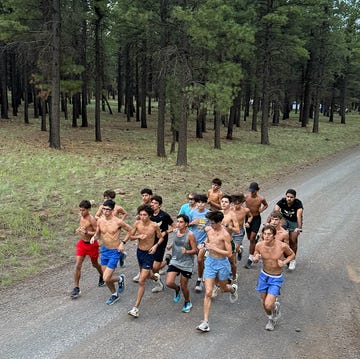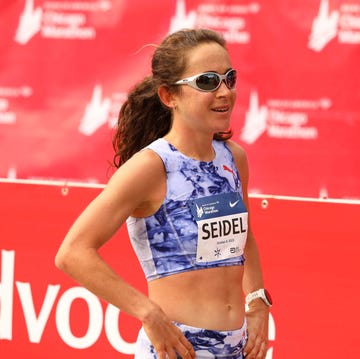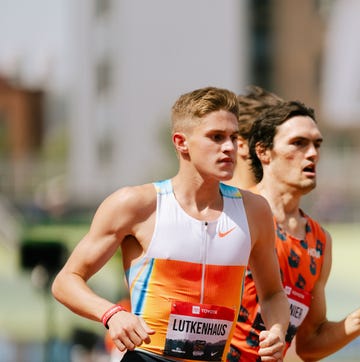Lance Armstrong is mostly known as a seven-time Tour de France winner who was stripped of his medals for testing positive for performance-enhancing drugs. It’s not the kind of legacy most athletes aspire to.
But one Australian entrepreneur wants to change that.
Aron D’Souza is the businessman behind the Enhanced Games, an Olympics-style competition with no drug testing. D’Souza and his coalition of athletes, doctors, and scientists are on a mission to change the way people think about doping in the sports world, and the organization’s website features a list of “enhanced world records,” celebrating achievements of athletes who had their medals revoked for doping.
Armstrong is on that list, as well as Ben Johnson, who was stripped of his 100-meter gold medal and world record at the 1988 Olympics when it was determined that he’d used anabolic steroids. The website includes an accompanying statement about how the International Olympic Committee “has committed itself to vilifying enhanced athletes.” It continues, “Each Olympiad, another cohort of brave athletes sets new world records, only to have their medals revoked, their careers suspended, and their names dragged through the mud. It is time to end this oppressive cycle. The Enhanced Games hereby reinstates the world records set by the following athletes and commends them for their bravery.”
D’Souza plans to host the inaugural no drug testing Games next December, and told The Guardian there are two “high-profile Australian athletes among those expressing interest.” Five sport categories will be contested—track and field, swimming, weightlifting, gymnastics, and combat sports—with the Games held annually.
Appalled by the concept, Australia’s Olympic chef de mission for Paris 2024 (and former Olympic gold medalist in track cycling) Anna Meares says, “It’s a joke, to be honest. Unfair, unsafe—I just don’t think this is the right way to go about sport.”
It does sound like a joke, but D’Souza is serious about the concept and in addition to his personal funding, he says he’s attracted interest from Silicon Valley investors. He compares the idea of 40 to 60-year-olds breaking world records with the aid of performance drugs to the rise of artificial intelligence and other technologies.
“Athletes are adults, and they have a right to do with their body what they wish—my body, my choice; your body, your choice,” D’Souza told the Australian Associated Press. “And no government, no paternalistic sports federation, should be making those decisions for athletes—particularly around products that are FDA regulated and approved.”

Abby Carney is a writer and journalist in New York. A former D1 college runner and current amateur track athlete, she's written about culture and characters in running and outdoor sports for Runner's World, Like the Wind Magazine, The New York Times, and other outlets. She also writes about things that have nothing to do with running, and was previously the editor of a food magazine.













